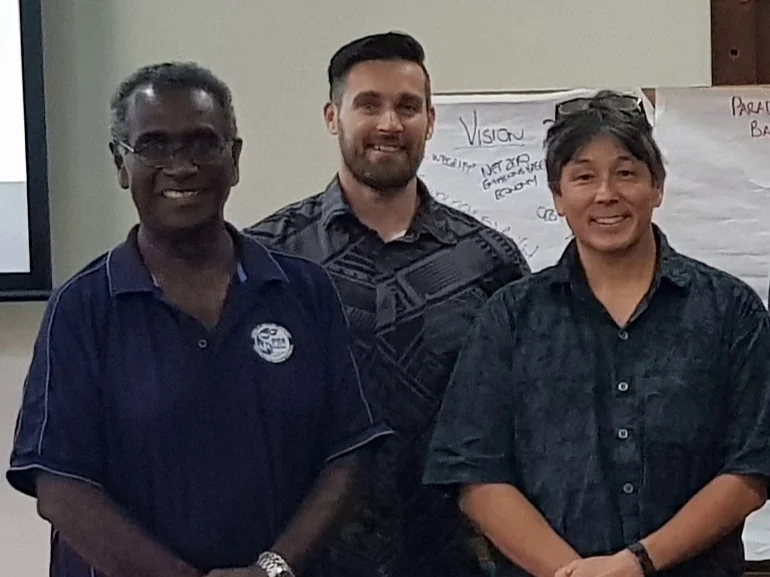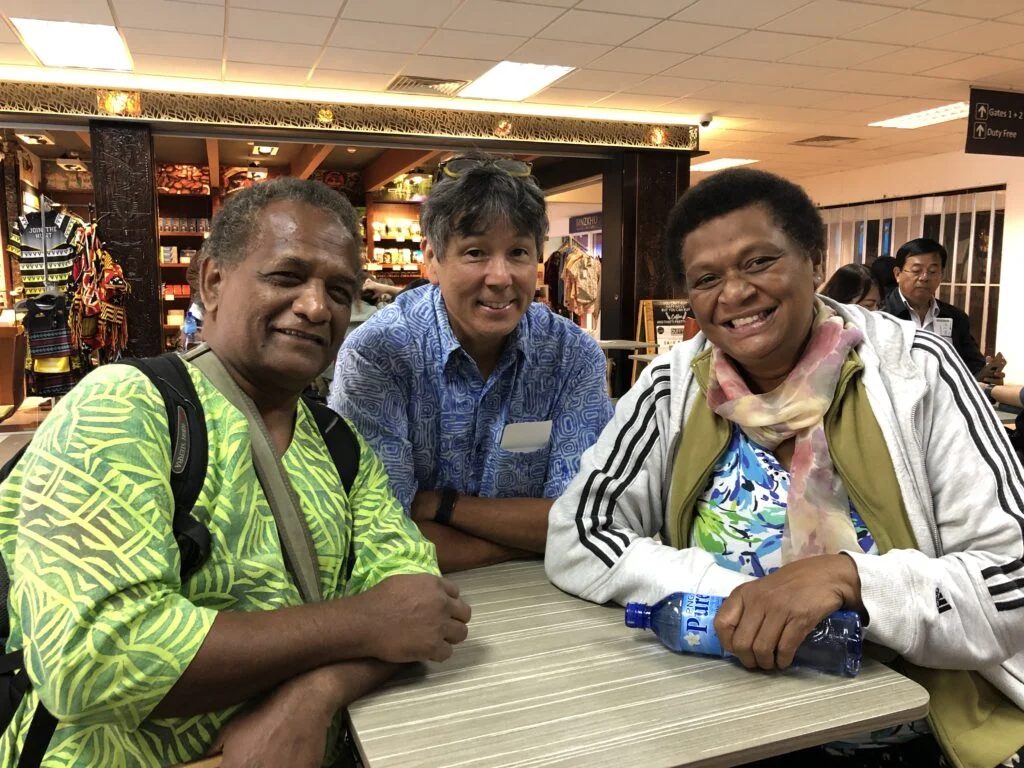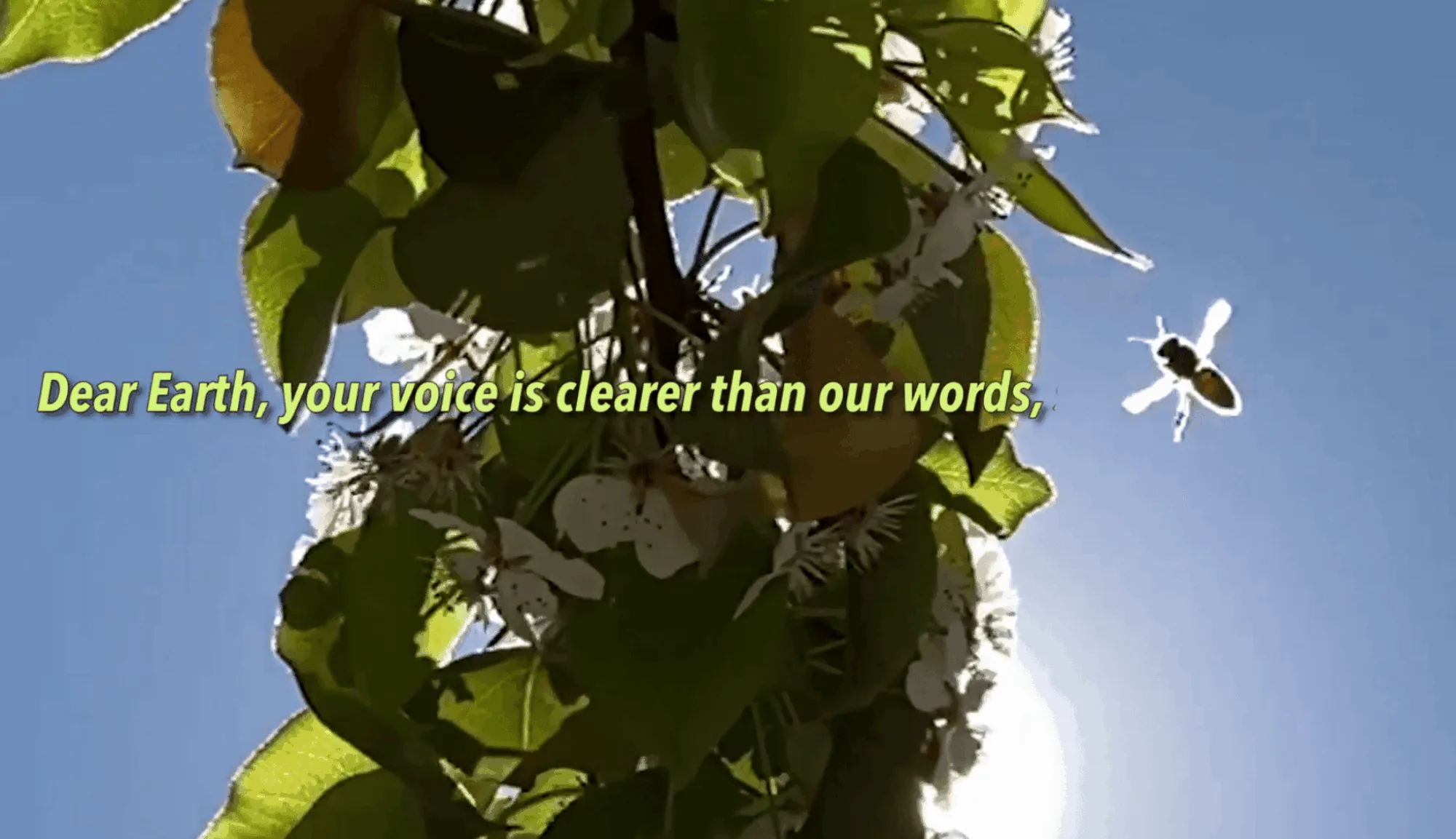The Intemerate Working Group on Data, Statistics, and Valuation included Dr. Transform Aqorau, Dr. Timothy Bryar, Dr. Chanzo Greenidge, Ms. Rosa Koian, Mr. Clint Kuboyama, Mr. Barry Lalley, Mr. Tapiwa Nhidza, Mr. Samuel Akpobome Orovwuje, Mr. Arnie Saiki, Ms. Ali’itasi Stewart, Dr. Jamie Tanguay, and Dr. Jose Zambrana.

Intemerate Earth is a registered non-profit 501(c)(3). We have been fortunate to receive support from the Ecological and Economic Justice Program, World Council of Churches (WCC), the Reweaving the Ecological Mat Initiative promoted by the Institute of Mission and Research (IMR), Pacific Conference of Churches (PCC), the Pacific Theological College (PTC), the Oceanic Centre for Arts, Culture, and Pacific Studies at the University of the South Pacific (USP), and the Pacific Island Forum/Secretariat (PIF).

Historical brief:
Intemerate is defined as, “inviolate, pure, undefiled,” in Webster’s Third New International Dictionary (1971); and the Oxford English Dictionary (1971) quotes, “The absolute sinlessness of Mary, as well as her intemerate virginity.” Hence, intemerate accounts refer to the valuation of what is inviolate, pure, and undefiled: our ecological biodiversity.
The spirit for establishing an intemerate accounting scheme was inspired by a discussion that took place in Los Angeles, California with Reverend Francois Pihaatae, the General Secretary of the Pacific Conference of Churches (PCC). Meeting on the sidelines of the U.S. premiere of their film “The RE-Birth—the Call of our Mother to Renewal,” we discussed how Pacific Regionalism gives legitimate meaning to the notion of self-determination. The Five Points contributing to PCC’s “Rethinking Oceania” project included: 1) Governance and Leadership; 2) Development in Oceania, 3) Peace and Security; 4) Climate Change and Resettlement of Populations, and 5) Cultural and Social Cohesion.
Addressing these five points, for our sea of islands to truly be chartered by our people, there needed to be a regulatory ecological framework that accounted for our integrated regional equity in the global economy and that the UN System of National Accounts (SNA) had proposed early drafts of a System of Environmental Economic Accounts (SEEA), that could aggregate data for environmental degradation and resource depletion as deficits to national accounting systems.
Further, in a rather profane attempt to address economic valuation, I drew upon themes addressed in “Rethinking the Household of God in the Pacific,” and cautiously proposed an accounting scheme that was not dissimilar to how we might “value” the mystery of Immaculate Conception.
Just as the economy of the Catholic church is to some degree predicated on the mystery of Immaculate Conception, an intemerate account assumes that what is sacred has another kind of value that resists monetization while simultaneously providing value equity that can be leveraged for economic sustainability. In seeking to describe an accounting pathway, we have to acknowledge that the mystery of Immaculate Conception assumes that Mary’s virginity is sacrosanct. Monetizing that virginity would be to deviate from an economy based on the miracle and mystery of Immaculate Conception into one of common prostitution. This does not, however, constitute a paradox, as it is not her virginity that is monetized, but rather, the belief of Immaculate Conception.
Unlike how we normatively measure goods and services, there are other processes that measure our interactions in an economy. What is immaculate, for example, has unlimited potential value, and it is our interaction with our faith that provides for the economic sustainability of one of our longest-held institutions.
Metaphorically, if we apply this to environmental accounts and consider that our ecological biodiversity is sacrosanct to how we rethink the Household of God, then we should consider that the value of our ecological biodiversity also resists monetization in natural accounting schemes because by doing so, we are figuratively monetizing Mary’s virginity.
How this can be approached, however, is to establish a baseline for accounting for the value of our ecological biodiversity by leaving it “inviolate, pure, and undefiled” and equalize that value against the assets of industries and economies that benefit most from environmental degradation and resource depletion.
Shortly after the Intemerate Accounting book was published, the world was suddenly gripped by COVID-19. What had begun as an exploration of a Pacific, then an ACP-inspired ecological-economic accounting endeavor resulted in new discussions about whether our EEA could be applied globally, in both the advanced economies as well as developing countries. We believe it can.
